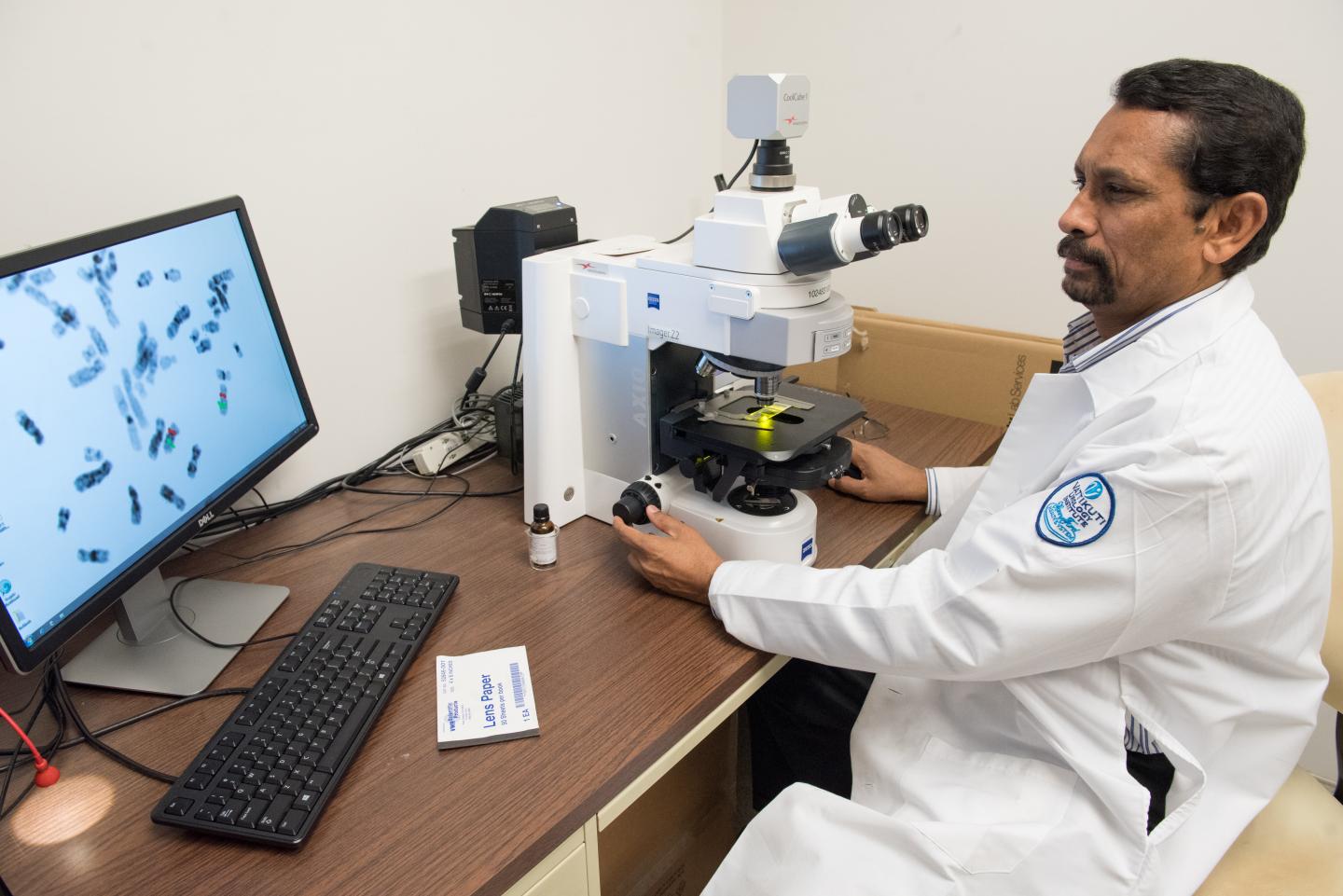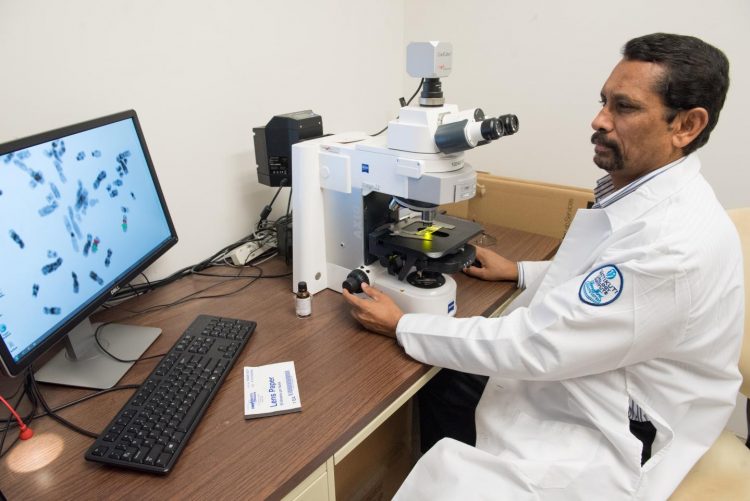
Credit: Henry Ford Health System
DETROIT – A research study published in the journal Neoplasia and led by principal investigator Nallasivam Palanisamy, Ph.D., associate scientist in the Vattikuti Urology Institute at Henry Ford Health System, has identified a novel prostate cancer gene fusion involving the KLK4 protein coding gene and KLKP1 pseudogene. This unique biomarker can be detected in the urine samples of patients with prostate cancer, offering a non-invasive means of detection.
Currently, the prostate specific antigen (PSA) exam is used as the standard screening method for prostate cancer. However, elevated PSA levels are not exclusive to prostate cancer, as they can also be caused by benign prostate conditions. As a result, an elevated PSA test can sometimes lead to an unnecessary prostate biopsy for the patient, which carries a risk of bleeding and infection. Findings from this research may offer a more accurate and reliable method to diagnose prostate cancer.
“This study is exciting because it has the potential to offer a non-invasive alternative to the traditional PSA test in order to diagnose significant prostate cancers,” said Craig Rogers, M.D., chair of the Vattikuti Urology Institute at Henry Ford Health System. “The discovery of new biomarkers ultimately benefits our patients, as it advances our understanding of this complex disease and how to most effectively treat it.”
When the KLK4 protein coding gene and KLKP1 pseudogene fuse together, the fusion gene KLK4-KLKP1 is formed. Pseudogenes like KLKP1 are the non-functional, or dead, versions of an actual gene that is normally not expressed in a cell but can become active in cancerous cells and disrupt the functions of the actual gene.
“The unique feature of this fusion gene is the conversion of the noncoding pseudogene KLKP1 into a protein coding gene, and its unique expression in about 30 percent of high Gleason grade prostate cancer,” said Dr. Palanisamy. “Like other ETS family gene fusions, KLK4-KLKP1 can also be detected in the urine samples of patients with prostate cancer, enabling non-invasive detection of prostate cancer. Given the unique feature of this fusion, prostate cancer specific expression, oncogenic properties and noninvasive detection, this novel gene fusion has the potential to be used as a biomarker for early detection of prostate cancer and a therapeutic target.”
The researchers conducting this study screened a cohort of 659 patients (380 Caucasian American; 250 African American, and 29 patients of other races), which revealed that the KLK4-KLKP1 fusion gene is expressed in about 32 percent of prostate cancer patients, representing a distinct subset of prostate cancer cases. Correlative analysis showed that the new fusion gene can be used in combination with other prostate cancer molecular markers for cancer detection. In addition to urine samples, the fusion could also be detected in needle biopsy tissue samples by using a specific antibody.
Prostate cancer is the most common cancer among men in the United States. Advances in diagnosis, treatment, and management have resulted in increased survival rates, yet prostate cancer still remains the second leading cause of cancer-related deaths among American men. One of the major barriers to achieving successful prostate cancer control is the underlying molecular complexity of the disease itself.
###
Media Contact
Jeff Adkins
[email protected]
Original Source
https:/
Related Journal Article
http://dx.





